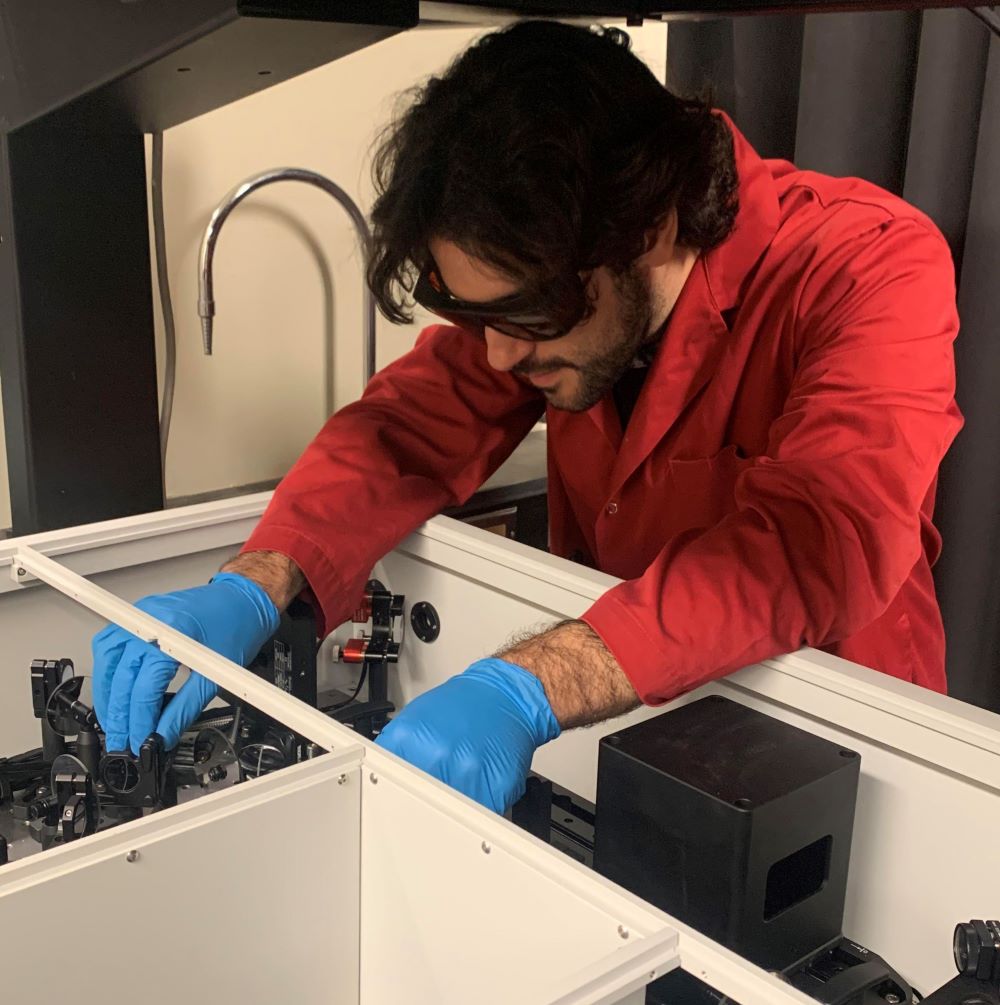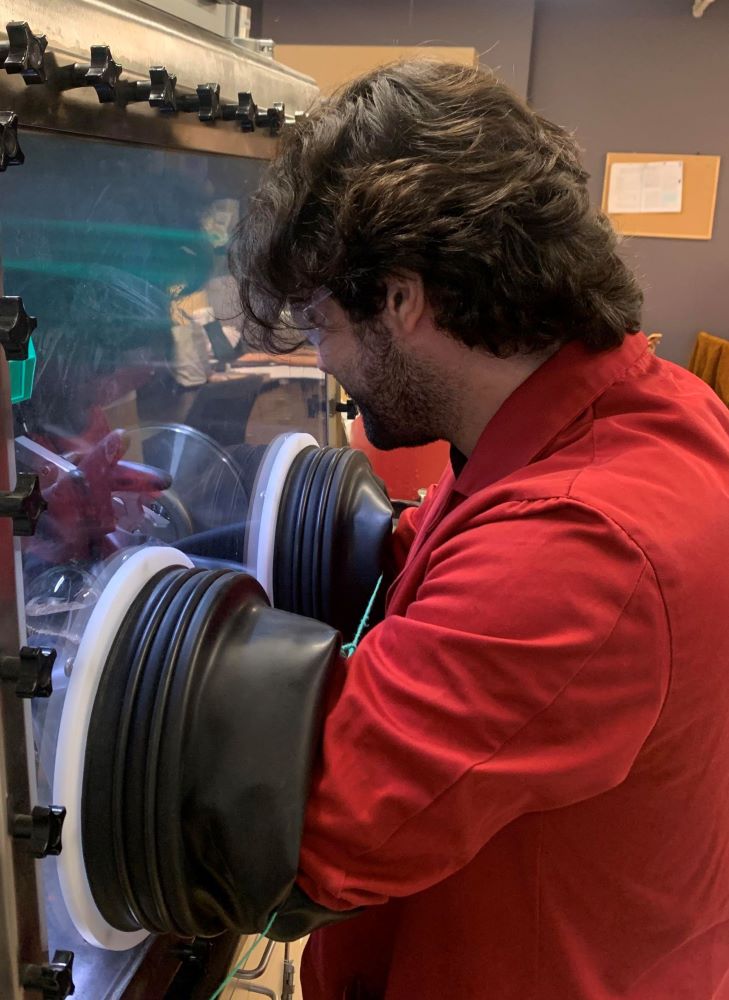Right from the beginning, Nick Neokleous knew that engineering was what he wanted to do, driven by his fascination with science and the inner workings of things.
“In first year, I was interested in three different engineering programs,” he says. “Chemical Engineering, Engineering Chemistry, and Mathematics and Engineering. The program education maps provided by the faculty helped me make the decision to go with Engineering Chemistry. That program is recognized and accredited by both the Canadian Society for Chemistry and the Canadian Engineering Accreditation Board, and it bridges the gap between the laboratory and the field which was exciting. It gave me a sense of purpose and engagement right from the start.”
In addition to pursuing a master's degree in chemistry and working as an engineer, Neokleous also enjoys acting in local plays, trying new hobbies such as silversmithing, and engaging with the Kingston community.
As he approached his third year of undergraduate study, he found himself increasingly curious about experiential learning and its potential benefits, driven by a desire to gain industry experience while remaining in Kingston and alleviating financial burdens by living at home. Neokleous’ dedication and enthusiasm were apparent as he embraced the opportunity to participate in the Queen’s Undergraduate Internship Program (QUIP) before the arrival of the COVID-19 pandemic.
“I didn’t know about QUIP coming to Queen’s, but I stumbled upon it during my early university years. I attended an internship Information Session and Job Fair booth in first year and that triggered my interest” he says.
“My primary goals for pursuing an internship were to enhance my resume, stand out by gaining marketable skills, and enjoy the substantial financial incentives associated with the program. The encouragement and support from my housemate, who shared the same dedication to internships, proved invaluable,” adds Neokleous.
With specific companies in mind, such as KPM and Invista, Neokleous sought the assistance of an advisor to connect with current interns. This strategic move worked to his advantage, resulting in an offer after a successful interview.
“Throughout the process, I received unwavering support from my advisors. And the internship experience was transformative. I was able to explore my likes and dislikes while simultaneously building my resume and earning a salary.”

Neokleous describes the skills acquired during the internship as tools, emphasizing their pivotal role in engineering. He believes that strong critical thinking, effective teamwork, and a multitude of other skills are tools that engineers develop over time.
“It's important to identify the tools you need that resonate most with you as an individual. This leads to the best possible experience and intrinsic motivation in your work. For students like me, an internship serves as one of the most effective ways to initiate the development of this toolkit.” He acknowledges that these toolkits can vary among individuals based on their unique experiences and areas of expertise.
“I firmly believe that experiential learning enhances one's academic prowess and cultivates a more well-rounded personality.”
Having completed his internship, Neokleous gained a deeper understanding of the type of work that truly excited him. He discovered a strong inclination towards mentorship and fundamental research, which set him on the path to pursue graduate studies.
The QUIP experience also provided Neokleous with valuable perspectives and insights that he now brings to his graduate studies. He learned how to effectively design experiments, address critical research questions, and embrace the concept of "failing fast." This approach entails quickly performing experiments to disprove incorrect hypotheses. His industry experience also taught him the importance of simplicity in experiment design and test plans. This mindset has greatly aided Neokleous in planning and executing his research as a graduate student.
Currently pursuing a Master of Chemistry in collaboration with the Department of Chemical Engineering, Neokleous’ project revolves around chemical sensing. This unique intersection of pure chemistry and engineering aligns perfectly with his background in engineering chemistry.
“It’s designing and 3D-printing microfluidic channels, growing silver nanoparticles from simple reagents, and chemical sensing. All of the work is very engaging and hands on!”
Neokleous concludes by sharing some insights about the perks of graduate studies. He highlights the significantly smaller class sizes, with most classes comprising fewer than 10 students, except for a few mandatory courses.
“Graduate courses are often taught by professors specializing in specific fields or subjects, ensuring in-depth and engaging discussions. Although the content may be more niche, professors are always available to help.”
Maintaining a competitive GPA in graduate school is still manageable even with research and work a teaching assistant.
He warns against pursuing graduate studies solely as a means to delay the decision of entering the industry, as this approach may result in a lengthy and unfulfilling experience. “Graduate studies are not suitable for everyone. One needs to carefully consider their goals and aspirations. If you’re interested in effective science communication, learning new laboratory techniques, and being at the forefront of a particular field, graduate studies can be a rewarding path.”
Neokleous finishes by highlighting the importance of considering supervisor and group dynamics when choosing a program. “A supportive supervisor and collaborative group can greatly enhance the overall experience. I enjoy being in my program and working with amazing people. My undergraduate courses and internship experience laid a strong foundation for me to pursue my dreams.”
